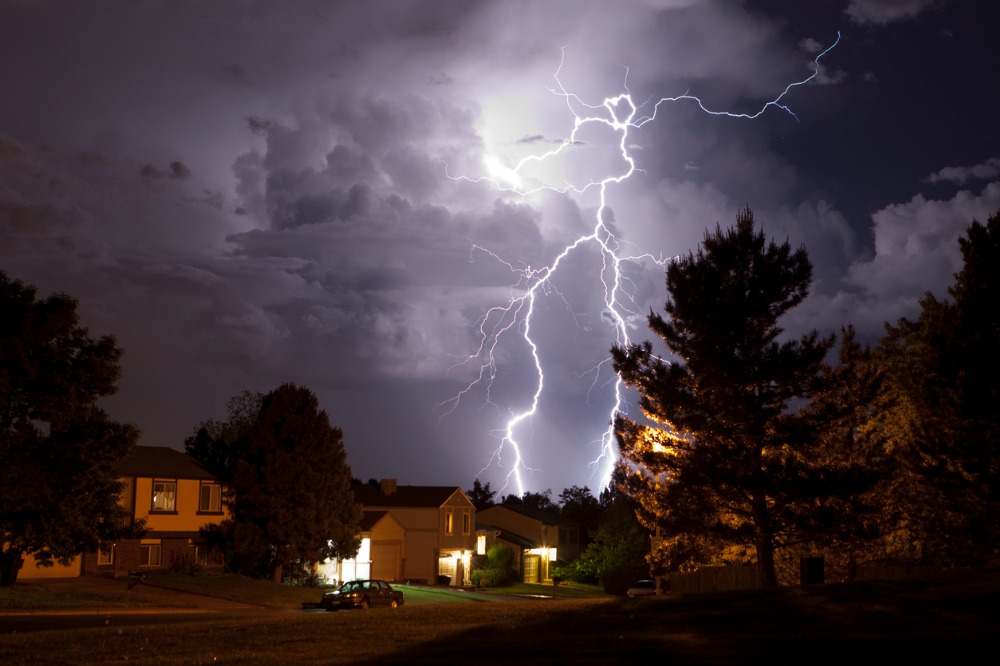Revealed – the most lightning-prone areas in the US

Revealed – the most lightning-prone areas in the US | Insurance Business America
Catastrophe & Flood
Revealed – the most lightning-prone areas in the US
Report recorded more than 2.1 billion lightning events worldwide in 2023
Catastrophe & Flood
By
Ryan Smith
Five Florida metro areas are among the most at-risk spots for lightning strikes, according to a new report from weather data provider Vaisala.
Vaisala recently published its 2023 Annual Lightning Report. The report, now in its seventh year, revealed a total of more than 242 million in-cloud and cloud-to-ground lightning events in the continental US in 2023, and more than 2.1 billion lightning events globally.
“2023 set a record for the number of billion-dollar weather disasters in the United States,” said Samuli Hänninen, head of Vaisala Xweather. “By year-end, 19 of the 25 events with losses exceeding $1 billion were attributed to severe storms. Severe weather can also be life-threatening, especially without the right safety measures in place.
“Lightning triggers wildfires, disrupts power, impacts businesses and poses a significant hazard to life and property,” he said. “Our 2023 annual lightning report focuses on the risks to wind farms and metropolitan areas. Early warning systems with severe weather forecasting and real-time lightning alerts play an important role in protecting people, businesses, and infrastructure from thunderstorms.”
Key findings of the report included:
Wind farms at great risk of lightning damage:
The report found a total of 77,494 lightning strikes at or near 1,500 wind farms in the US last year. Two wind farms – one in Texas and the other in Oklahoma – suffered more than 1,000 strikes each
A wind farm in Pushmataha, Okla., saw an average of 14.4 lightning strikes per turbine last year, followed by a wind farm in Freeborn County, Mich., which saw an average of 12 strokes per turbine. In total, three wind farms saw an average of more than 10 cloud-to-ground strikes per turbine. In contrast, a third of wind farms in the US suffered no lightning strikes at all last year
Lightning damage is estimated to cost the industry more than $100 million per year and accounts for 60% of blade losses and nearly 20% of operational losses overall
Most lightning-prone metropolitan areas:
Miami-Fort Lauderdale, Fla., was the most lightning-prone metro area in the country last year, with 120,998 cloud-to-ground strikes – more than 35 per square kilometer
Houston, Texas, suffered 73,114 strikes, followed by Atlanta with 55,490 strikes. The Dallas-Fort Worth area saw 41,038 strikes. On the East Coast, the New York-Jersey City-Newark metro area posted 28,132 strikes
Going by strikes per square kilometer, five metro areas in Florida ranked highest for lightning risk last year: Miami-Fort Lauderdale, Palm Bay-Melbourne, Cape Coral, Orlando and Jacksonville
The country’s tallest buildings attract lightning strikes:
Ten of the most famously tall buildings in the US were struck a total of 104 times in 2023. The Willis Tower in Chicago was struck 38 times. In New York, One World Trade Center racked up 26 lightning strikes. In third place was 875 North Michigan Avenue (formerly the John Hancock Center) in Chicago, with 15 strikes
Lightning activity around specific buildings varies widely from year to year. While Chicago has a higher average lightning density than New York City, over the past five years One World Trade Center has been struck significantly more often than Chicago’s skyscrapers
The lightning capitals of the United States:
When measured by frequency of strikes, Texas tops the list, with 42,388,860 lightning strikes in 2023
However, when measuring by lightning density, Florida takes the number-one slot, with 112.6 lightning events per square kilometer
Have something to say about this story? Let us know in the comments below.
Related Stories
Keep up with the latest news and events
Join our mailing list, it’s free!






